
Is access to clean drinking water a basic human right, or a commodity that should be bought and sold like any other article of commerce? Stephanie Soechtig’s debut feature is an unflinching examination of the big business of bottled water. From the producers of Who Killed the Electric Car and I.O.U.S.A., this timely documentary is a behind-the-scenes look into the unregulated and unseen world of an industry that aims to privatize and sell back the one resource that ought never to become a commodity: our water. From the plastic production to the ocean in which so many of these bottles end up, this inspiring documentary trails the path of the bottled water industry and the communities which were the unwitting chips on the table. A powerful portrait of the lives affected by the bottled water industry, this revelatory film features those caught at the intersection of big business and the public’s right to water.
You May Also Like

Michael Hutchence was flying high as the lead singer of the legendary rock band INXS until his untimely death in 1997. Richard Lowenstein’s documentary examines Hutchence’s deeply felt life through his many loves and demons.
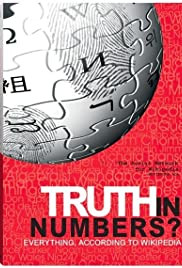
Although Wikipedia is the 8th most popular website on the Internet today, and it is already the 3rd most widely read ‘publication’ in human history, attracting 100 million unique visitors a month, this great social and academic experiment of our age is riddled with vandals and challenged by skeptics, posing compelling questions about whether Wikipedia’s model can truly achieve its goal. The film intersperses founder Jimmy Wales’ unusual rise to Internet super-stardom among the global implications of Wikipedia. Are entries factually accurate? Biased? Accountable? Does ‘Jimbo’ Wales posses the wisdom to ensure that Wikipedians aggregate knowledge correctly?
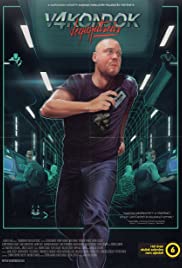
It is the year 2546. Corporations rule the world, and an agent is on a secret mission to explore the untold stories of the past. His journey leads him into a secret virtual reality where one corporation has recreated the 1980s, an era that witnessed the birth of video game development, an event in which a politically and economically restricted small European country, Hungary, had a significant role. He discovers a strange but exciting world, where computers were smuggled through the Iron Curtain and serious engineers started developing games. This small country was still under Soviet pressure when a group of people managed to set up one of the first game development studios in the world, and western computer stores started clearing room on their shelves for Hungarian products.
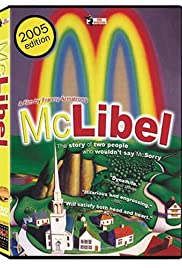
McLibel is a documentary film directed by Franny Armstrong for Spanner Films about the McLibel case. The film was first completed, as a 52 minute television version, in 1997, after the conclusion of the original McLibel trial. It was then re-edited to 85 minute feature length in 2005, after the McLibel defendants took their case to the European Court of Human Rights.

In Fabrizio Terranova’s film, Donna Haraway – an original thinker and activist, one of the founders of cyberfeminism and the author of A Cyborg Manifesto, which proposed a number of innovative theories about the existence of scientific knowledge – calls for the abandonment of the idea of human exceptionalism and for a conception of the world as complex web of interconnections between people, animals and machines. Jellyfish can be seen flying around her home while she discusses the stories that are necessary for Earth’s preservation and reads her fantastic tale of the art of survival on a broken planet, and of fusion and care between the species.

The astonishing true story of a zoo-born lion who found himself in the pet department of Harrods, then the cellar of an antique shop in London and, ultimately the wilds of Africa.
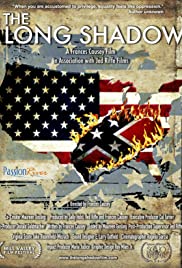
When filmmaker and investigative journalist Frances Causey, a daughter of the South, set out to explore the continuing racial divisions in the US, what she discovered was that the politics of slavery didn’t end with the Civil War. In an astonishingly candid look at the United States’ original sin, The Long Shadow traces slavery’s history from America’s founding up through its insidious ties to racism today.

Director James Fox assembled the most credible UFO witnesses from around the world to testify at The National Press Club in Washington D.C.: Air Force Generals, astronauts, military and commercial pilots, government and FAA officials from seven countries tell stories that, as Governor Fife Symington from Arizona stated, “will challenge your reality”.
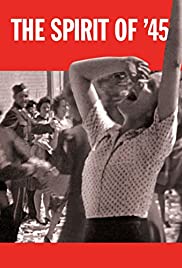
Ken Loach’s 2013 documentary about social change in Britain in the aftermath of the Second World War, including the nationalisation of industries and the formation of the welfare state. Made almost entirely in black & white, so B&W archive footage from the 1940s blend in with interviews made today.

Boogie Man is a comprehensive look at political strategist, racist, and former Republican National Convention Committee chairman, Lee Atwater, who reinvigorated the Republican Party’s Southern Strategy to increase political support among white voters in the South by appealing to racism against African Americans. He mentored Karl Rove and George W. Bush and played a key role in the elections of Reagan and George H.W. Bush.
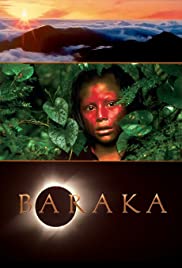
This is a paralyzingly beautiful documentary with a global vision: an odyssey through landscape and time, that is an attempt to capture the essence of life.

Jamie Anderson has won more X Games and Olympic medals than any other woman in history. Being the best competitive snowboarder of all time is an asterisk that Jamie leaves behind as she pursues even greater riding challenges.